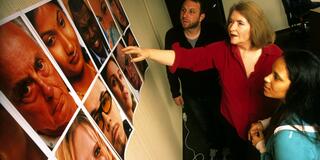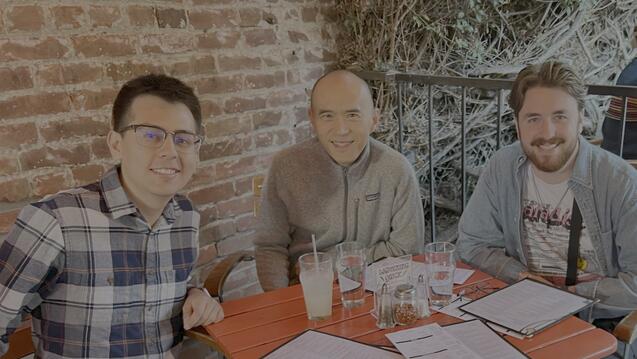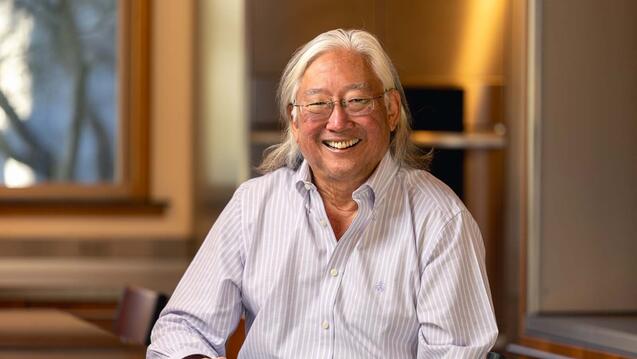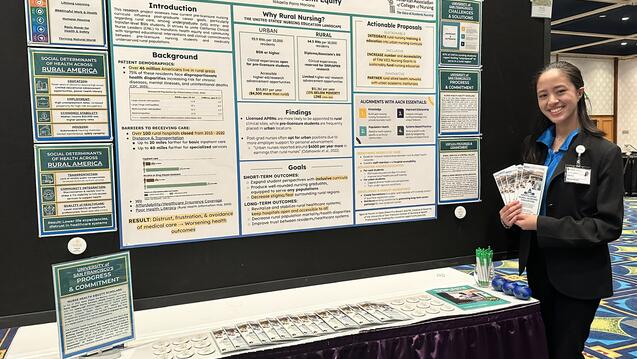USF Professor’s Research Is Lies

Her waistline hasn’t been as skinny as that of the actress who portrays her in the Fox television crime drama “Lie to Me” since she was a pre-teen, jokes USF Professor of psychology Maureen O’Sullivan in her offhanded way of noting the irony of Hollywood, a place of fiction and fabrication, being captivated by her work. Still, there’s no denying that it’s her years of research on deception and lie detection upon which the show is based.
O’Sullivan has been researching social emotional intelligence – the ability to manage, recognize, communicate, and detect and decipher emotions in others – for more than 30 years. She and colleague Paul Ekman, professor emeritus at the University of California San Francisco, have written dozens of articles about their findings regarding some people’s uncanny ability to detect a lie using little more than simple observation and life experience.
Of almost 20,000 people that O’Sullivan and others have tested, fewer than one percent come close to the fictional Dr. Cal Lightman (Tim Roth) – the lead character in “Lie to Me” who is loosely based on Ekman, and who is able to discover lies through micro-facial expressions, the lilt in someone’s voice, or their personal ticks as part of his work on criminal investigations.
Like people in the real world, including expert lie detectors, Fox's fictional Dr. Gillian Foster (Kelli Williams) – who is loosely based on O'Sullivan and is Lightman’s more holistic television sidekick – has trouble detecting the same lies in her own relationships.
“We believe the lies we are told because we want to believe them,” said O’Sullivan, who in spite of being an expert in deception, admits to being duped out of large sum of money by a real estate investor about 15 years ago. In meeting the man, who was recommended to her by friends, she observed that he was overly anxious and didn’t appear to be very intelligent. Still, she followed her friends’ advice.
“I invested and I lost money,” O’Sullivan said. “I let my greed get in the way. I let that sway me.”
O’Sullivan believes the popularity of “Lie to Me” is a result of the public’s attraction to what goes on in the minds and hearts of others.
And while she enjoys the show, there are many aspects, outside of her waistline, that aren’t true to science, O’Sullivan said. For one, people aren’t born “natural” lie detectors but have a greater or lesser capacity to learn to detect lies through working with people.
“Cops tend to do well in detecting lies about theft; therapists tend to do better detecting lies about emotion,” said O’Sullivan, who is writing a book on a number of the so-called Truth Wizards, or lie detection experts, she has interviewed over the years.
These are people who can detect a lie at least 80 percent of the time on average by watching video of someone. “Some of these individuals are exceptional,” O’Sullivan said. “They’re like Olympic athletes.”
Greta Klaber, a psychology major who recently graduated from at USF, thinks it’s “pretty great” that her professor’s work is penetrating the mainstream. Working with O’Sullivan has dramatically contributed to her education and allowed her to present some of the research at the Western Psychology Association Convention in Irvine in April 2008.
“In many ways I felt as though Dr. O'Sullivan was the backbone of my experience at USF,” said Klaber, who did data entry, analysis, and occasionally ran experiments. “She was an invaluable mentor, my adviser, and my supervisor.”


